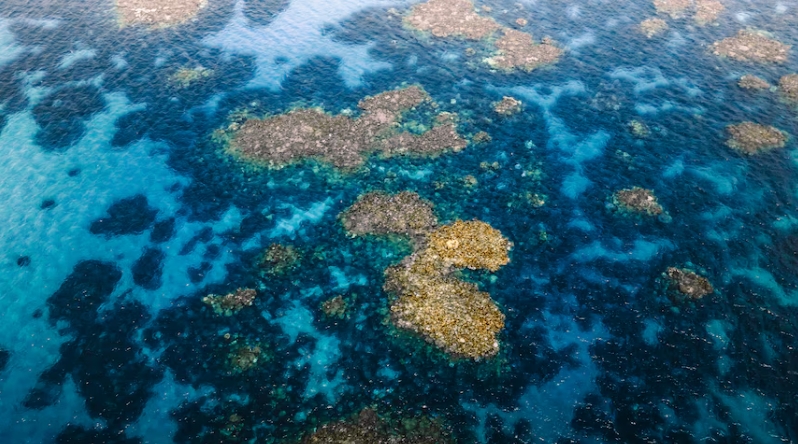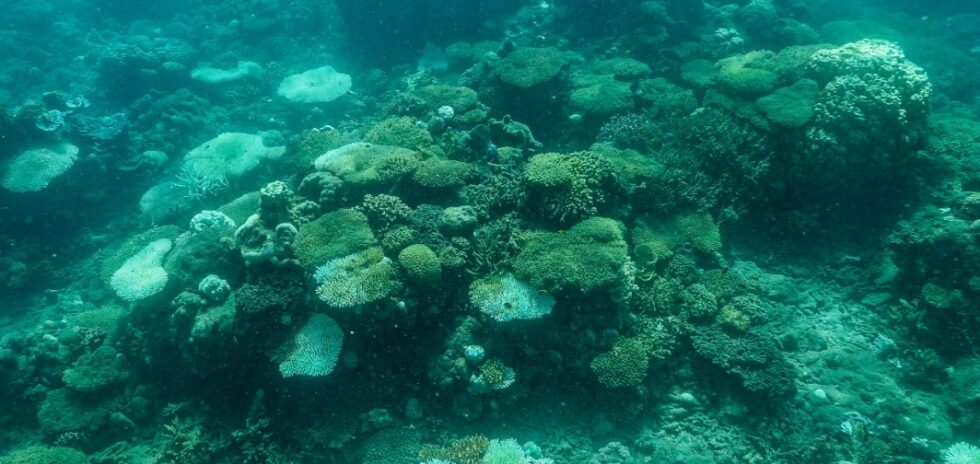
One of Australia’s most remote coral reef systems has escaped the brunt of a recent global heat stress event that hit other marine ecosystems hard, although scientists still hold concerns for its future.
The Ashmore and Scott reefs, north of Broome in Western Australia’s Kimberley region, are closer to Indonesia than the mainland.
Higher than typical sea surface temperatures have been recorded since October last year, and there was concern for the reefs’ health over the tropical summer.
James Gilmour from the Australian Institute of Marine Science (AIMS) said warming waters could be detrimental to the health of a reef.
“If a human’s temperature increased internally by two or three degrees over many months that would be catastrophic for us,” he said.
AIMS has surveyed Scott Reef annually since 1994 as part of a unique long-term study.
Scott Reef had its first bleaching event in 1998 and had almost four successive years of heat stress to 2020.
So scientists were concerned when temperatures began to rise last year.
“It’s a pretty bad state of affairs, because we find ourselves wishing for storms and cyclones — not so bad that they cause damage, but just [dropping] the temperatures,” Dr Gilmour said.
Storms bring heat relief
Excessive heat stress causes coral to expel its symbiotic algae, turning the reef a ghostly white.
But much to the relief of researchers, a series of tropical storms at the Scott and Ashmore reefs earlier this year lowered the temperature by 3 degrees Celsius, according to satellite sea-surface data.
The storms did cause minor damage and Dr Gilmour, who’s been studying Scott Reef with AIMS for many years, said some small bleaching occurred before Christmas.
“We also did see some level of disease and … a reef that is losing its diversity,” he said.
“We’re starting to see less diverse corals on the reef and to some extent a lower abundance of corals.”
Watching the changing reef
Dr Gilmour said data would be examined to see if the lower abundance and diversity was indicative of a trend.
The reef ecologist said it was “confronting” to see the marine system suffer.
“It’s actually really emotional,” Dr Gilmour said.
“I watched Scott Reef recover from the 1998 bleaching event and 10 or 12 years later it looked beautiful — it was an amazing place — then in 2016, saw it die and the large loss of corals.”



